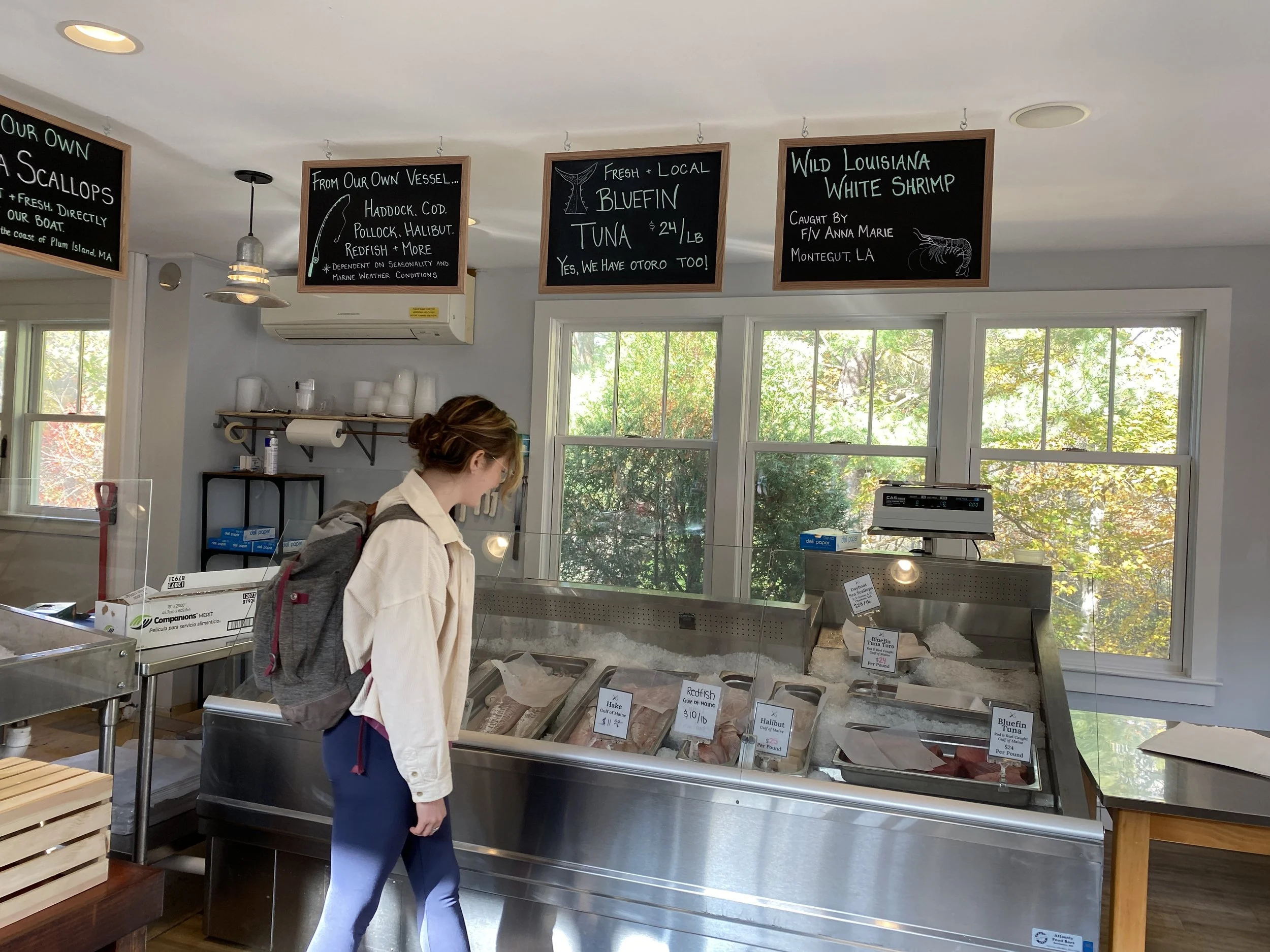Seafood Habitat Protection
Intro - use text from original page
New England Marine habitats
New England waters are composed of an array of habitats and, thus, a wide array of marine organisms. Habitats in New England include estuaries, salt marshes, seagrass beds, intertidal zones, open ocean and more. For more detailed information on New England ecosystems, click here. Each of these habitats are home to species that depend on specific biotic and abiotic factors of these environments to survive. And often a single species will depend on a combination of habitats throughout their life cycle…
Explore some of our New England habitats and local species:
How habitats are impacted by human behavior
Pollution
Runoff
Plastics
Habitat Destruction
Coastal development
Climate change
How to help protect habitats
Simple changes to make in your daily life to support healthier habitats:
at home:
Conserve water whenever possible
Avoid toxic products, instead opt for natural cleaners, detergents, etc.
Check and maintain your septic system, replace older systems with ones that remove nitrogen
Reduce, reuse, recycle
in the backyard:
Reduce fertilizer use - use organic, slow-release, water-insoluble fertilizers (start a compost pile to make natural nutrients for garden/yard)
Reduce water to reduce runoff
Plant and grow native, hardy plants
Pick up pet waste
on the water:
Properly pump waste
Avoid fuel spills
Follow regulations (speed limits, no wake zones, fishing/shellfishing rules, avoid eelgrass beds)
Clean up trash
Use marine safe products, like nontoxic, biodegradable cleaners and safe paints
in general
Buy less plastic, shop sustainably
Reduce emissions by using fuel efficient vehicles, public transportation, car pooling, biking or walking as much as possible
Conserve energy, opt for energy efficient items
Volunteer
Help at local beach clean ups
Volunteer with local non-profits or other organizations on habitat restoration projects
Vote
Attend your town meetings
Support plans that reduce pollution and promote habitat conservation and restoration

